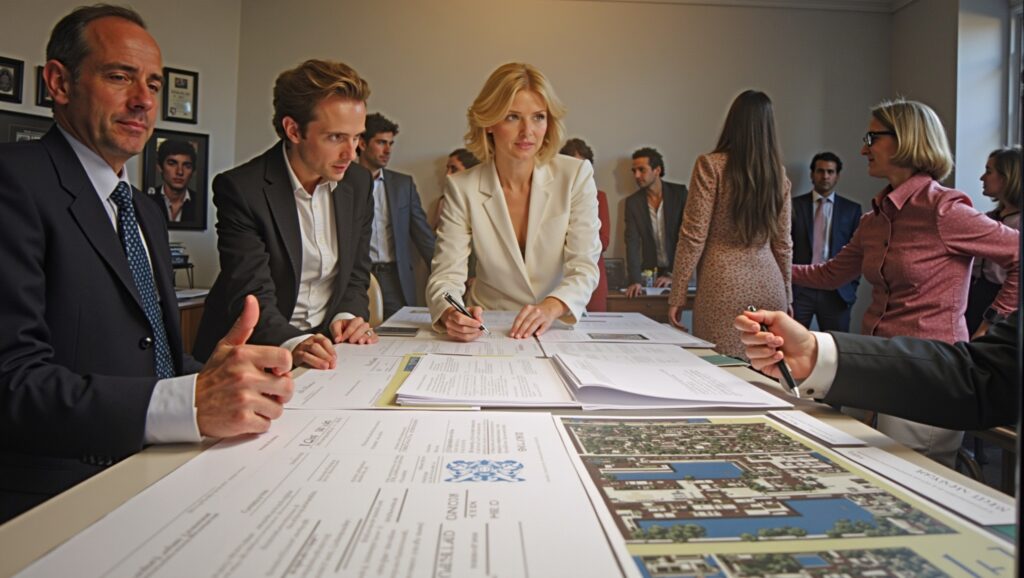In the world of business transactions, understanding the due diligence process is paramount to ensuring a successful deal.
Whether you’re a buyer aiming to acquire a new company or a seller looking to showcase your business’s value, conducting comprehensive due diligence can make or break your transaction.
This article will guide you through the essential steps of the due diligence process, explore key objectives, identify common pitfalls, and provide best practices to enhance your chances of achieving a successful business transaction.

Key Takeaways
- The due diligence process is crucial for evaluating potential risks and opportunities in business deals.
- Key objectives of due diligence include confirming financial health, assessing legal compliance, and understanding market position.
- Following a step-by-step guide can streamline the due diligence process and ensure thoroughness.
- Avoiding common mistakes, such as insufficient research and overlooking critical details, is essential to success.
- Utilizing appropriate tools and best practices can enhance the effectiveness of the due diligence process.
Understanding the Due Diligence Process
When investing in Costa Rica real estate, understanding the due diligence process is crucial to ensuring a successful and secure transaction.
This process involves thorough research and verification of all aspects related to the property you intend to purchase.
It typically encompasses legal checks, confirming the property’s title and ownership, assessing zoning regulations, and reviewing any outstanding liens or liabilities.
By engaging professionals such as real estate agents, lawyers, and title companies, you can navigate the complexities of the Costa Rican property market with confidence.
Additionally, it’s essential to evaluate the property’s physical condition, as well as the surrounding area, to ensure it meets your expectations and investment goals.
Overall, a well-executed due diligence process not only protects your interests but also enhances your long-term investment in the vibrant and beautiful landscape of Costa Rica.
Key Objectives of Due Diligence
Conducting a thorough due diligence process is essential for anyone looking to invest in Costa Rica real estate.
One of the primary objectives of this process is to verify the legal status of the property, ensuring that the title is clear and free from disputes.
This involves checking for liens, easements, and ensuring that the property adheres to local zoning laws.
Additionally, assessing the property’s physical condition is critical; potential buyers should review any existing inspections, surveys, or appraisal reports.
Financial analysis also plays a key role, where investors examine potential tax implications, maintenance costs, and the overall market value to guarantee a sound investment.
Ultimately, the due diligence process aims to equip buyers with comprehensive knowledge, reducing risks and promoting informed decision-making in the vibrant Costa Rican real estate market.
‘In business, as in life, the secret is to be ready for anything that may come your way, and that includes the painstaking process of due diligence.’ – Unknown

Step-by-Step Guide to Conducting Due Diligence
When navigating the exciting world of Costa Rica real estate, understanding the due diligence process is crucial to making a well-informed investment.
This step-by-step guide will help you ensure that you’re taking the necessary precautions before finalizing any property purchase.
First, start with a thorough title search to confirm that the seller has clear ownership of the property and that there are no encumbrances or liens against it.
Next, assess the property’s zoning regulations to ensure that your intended use complies with local laws.
Additionally, hire a reputable real estate attorney who specializes in Costa Rican property law to help you understand the legal implications of your purchase.
Inspect the property for any potential issues, such as structural damage or environmental concerns, and obtain any necessary reports or warranties.
Finally, verify the costs associated with the property, including taxes and maintenance fees, to ensure that you are financially prepared for ownership.
By diligently following this due diligence process, you can safeguard your investment and enjoy all that Costa Rica real estate has to offer.
Common Mistakes in the Due Diligence Process
When it comes to navigating the Costa Rica real estate market, understanding the due diligence process is crucial for prospective buyers.
One of the most common mistakes is underestimating the importance of thorough research.
Clients often overlook key documents, such as property titles and zoning regulations, which can lead to unexpected legal challenges down the road.
Additionally, failing to conduct a comprehensive title search can result in the discovery of liens or encumbrances that significantly impact the transaction.
Buyers also frequently neglect to consider the environmental implications of their property choice, overlooking the need for proper surveys or assessments, especially in areas prone to natural disasters.
Furthermore, not consulting with local experts can leave buyers vulnerable to overvalued properties or unrealistic expectations about the purchase timeline.
By minimizing these mistakes and fully embracing the due diligence process, buyers can ensure a smoother and more informed experience when investing in Costa Rica real estate.

Tools and Resources for Effective Due Diligence
When navigating the Costa Rica real estate market, understanding the due diligence process is critical for making informed and secure investment decisions.
This process involves carefully evaluating a property before finalizing a purchase, ensuring that all aspects—from legal ownership to environmental considerations—are thoroughly assessed.
Essential tools and resources include local real estate agents who specialize in the area, legal professionals familiar with Costa Rican property laws, and online databases that provide public records.
Additionally, utilizing property inspection services can help identify potential issues with the property structure or land.
By leveraging these resources, investors can confidently navigate the complexities of the due diligence process, ultimately leading to a successful and satisfying investment in Costa Rica.
Best Practices for Successful Business Transactions
When engaging in business transactions, particularly in sectors like real estate, understanding and implementing the due diligence process is crucial.
This comprehensive investigation allows you to evaluate the risks and benefits associated with a deal before finalizing it.
To ensure a successful transaction, start by gathering all pertinent information about the property or business in question.
This includes verifying legal titles, assessing potential liabilities, and examining financial records.
Additionally, conducting inspections can reveal any hidden issues that could impact the value or function of the asset.
Consulting with experts, such as real estate agents or legal advisors, can also provide valuable insights.
By adhering to these best practices within the due diligence process, you not only safeguard your investment but also gain confidence in your business decisions.
Frequently Asked Questions
What is the due diligence process?
The due diligence process is a thorough investigation and evaluation conducted by a buyer or investor to assess the financial, legal, and operational aspects of a business before finalizing a deal.
Why is due diligence important in business transactions?
Due diligence is crucial because it helps identify potential risks, liabilities, and opportunities associated with a business, allowing the buyer to make informed decisions and avoid costly mistakes.
What are the key objectives of conducting due diligence?
The key objectives include assessing the viability of the business, verifying financial statements, understanding operational risks, evaluating compliance with legal regulations, and identifying potential synergies or conflicts.
What are common mistakes to avoid during the due diligence process?
Common mistakes include inadequate preparation, overlooking critical documents, failing to verify information provided by the seller, setting unrealistic timelines, and neglecting to involve experts when necessary.
What tools and resources can aid in the due diligence process?
Some effective tools and resources include due diligence checklists, financial analysis software, legal databases, online research platforms, and the expertise of legal and financial advisors.





